How Coram Shakespeare Schools Foundation can build amazing confidence
After months of hard work, discussion and planning, it was our absolute pleasure yesterday evening to be able to share the suite of programmes that Coram Shakespeare Schools Foundation will be delivering over the next year. We had a fantastic turn-out for the virtual event, where guests got to hear from some very special speakers, and of course to find out all the details of our three different projects for 2021.
If you couldn’t make it last night, you can see slides from the event here and view our inspiring launch video here - or you can carry on reading for a quick recap!
We kicked off with an address from Ruth, our Managing Director, who talked about her own experiences with the Festival as a teacher, and then outlined our vision for the coming year, a vision in which children and young people will play, recover, and build skills for the future and a commitment that Coram Shakespeare Schools Foundation’s network of educators will be supported with professional development opportunities as part of our creative community.
We were then lucky enough to have some words from two brilliant guest speakers, who we’ll look forward to welcoming back to Coram Shakespeare Schools Foundation events in the future!
Adrian Packer, head of CORE Academies Trust, drew our attention to the thought-provoking timing of the launch as right before most students are preparing to head back to the classroom. He talked about looking at the return through a ‘lens of aspiration’ - there’s been a lot of discussion lately about catch-up, but Adrian noted that we should be careful that a preoccupation with ‘left-behindness’ doesn’t cloud our ability to see opportunities for acceleration, and for ‘looking-forwardness.’
We need to challenge and replace the narrative of loss with one of sharing, learning and belonging, he said. After a period of disruption, it’s natural to expect anxiety, upset and anger in our young people, and to have concerns about societal fragmentation: our response to this should be to focus on a period of restoration in which we reason, reflect and reform. Adrian referenced Ken Robinson’s 1999 ‘All Our Futures’ report on the role of culture and creativity in education, and talked about the report’s new relevancy in the current climate. ‘Register your school with Coram Shakespeare Schools Foundation now as a statement of intent,’ he said.
And of course it wouldn’t be Coram Shakespeare Schools Foundation without a little input from the Bard himself. Adrian finished with a quotation from his favourite Shakespeare character, a character he described as ‘the comeback king, predicting better times ahead’ - King Henry V:
And, like bright metal on a sullen ground,
My reformation, glitt'ring o'er my fault,
Shall show more goodly and attract more eyes
Than that which hath no foil to set it off.
Having offered Adrian a part in his next Shakespeare production, thanks to his stirring recitation of 1 Henry IV, our second speaker, Suba Das, began by talking about the challenges that the theatre sector is facing currently. The picture for theatres at the moment, he said, was ‘murky and strange,’ with a great deal of precarity and uncertainty. It was fascinating to get an insider’s view of the theatre landscape at the moment, and certainly opened my eyes to some of the specific issues threatening them in these times. We hope it also helped to put into context the decision to alter the timing of our Theatre Festival, as one taken after careful consideration of the picture within the industry and when we would be most able to provide the kind of high-quality experience to which our participants are accustomed.
However Suba emphasised the aspirations of theatre with a phrase that I think stuck with a lot of us – of theatres as ‘places of joy.’ The way forward, he suggested, was through a blended model of digital and live performance, with events like One Night of Shakespeare, which we ran in November, leading the way on large-scale participation and having an ‘extraordinary impact.’ He stressed that technology offered new ways forward for theatres to improve on access and inclusion, on broadening the appeal of the theatre to draw in a wider audience.
Suba also drew attention to the Arts Council’s ‘Let’s Create’ strategy which is putting the emphasis on ‘embedded impact.’ The year-round suite of programmes we’re rolling out at Coram Shakespeare Schools Foundation, he said, really fits with the narrative driving cultural reform, of community engagement and attentiveness to the wellbeing of young people and teachers.
The Q&A session with Suba and Adrian included questions about how to challenge the narrative of ‘catch-up,’ and how to overcome the practicalities of running live theatre in a post COVID world.
On the first point, Adrian talked about how schools needed to cultivate a ‘sense of sanctuary’ and how the arts are the perfect mechanism for creating that kind of environment, to support a ‘catch-up’ that isn’t necessarily academic. Suba meanwhile, from a theatres perspective, spoke about ‘de-rigging the transactional model’ of theatre-going, of moves in the industry to reengage with the idea of the social contract – a direction in which Coram Shakespeare Schools Foundation is very much leading the way.
On the second point, both Suba and Adrian agreed that there would definitely be an appetite for theatre, once this becomes a safe possibility again. Both speakers suggested that there might actually be more take-up than before, Adrian focusing on the need for theatre as a safe space to have the profound and relevant conversations necessary after a disruptive event, and Suba noting that ‘all privations are a spur for creative insight,’ and that the arts provide the space for the kinds of resilience and innovation that lead us out of such crises.
After those thought-provoking conversations, it was onto the programmes launch! We turned to our brilliant Coram Shakespeare Schools Foundation team, to tell you all about the opportunities we’ll be providing in 2021.
Firstly we heard about our kick-off project, Summer of Shakespeare. Schools who sign up to this, will get to choose from three different, fully facilitated workshop options, all tailor-made to promote fun, teamwork and creativity in students of all ages. It’s a project now – for us to seize the moment, get outside, play and recover. We also teased the exciting, exclusive programme of digital events we’ll be running for all schools signed up to any of our programmes – stay tuned for more news on that soon!
We then introduced our Shakespeare Schools Film Festival, a brand new project for us in which we’re partnering with Into Film to pool our expertise and experience for a journey for students and teachers that will help you learn new skills, celebrate Shakespeare and produce a filmed outcome that we’ll be showcasing to a national audience.
Last but not least, we talked about the Shakespeare Schools Theatre Festival, which is coming with a few innovations of its own - like a new workshop format and a new Spring timeslot.
And on that note, and with a reminder to fill out the Interest Form to discuss in more detail which of these projects is right for you, we wrapped up a hugely successful event! We’re so excited to be beginning to accept registrations for these programmes, and to be moving on to the next stages of rolling them out and doing what we do best – providing transformational drama experiences to young people everywhere.
Until next time!
Beth & the Coram Shakespeare Schools Foundation team

